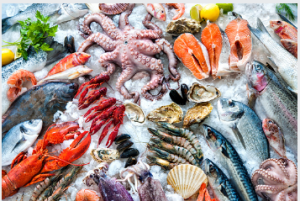Freezing food allows you to enjoy your favourite foods from the time they are harvested until they are ready to eat. Since the beginning of human civilisation, farmers, trappers, and fishermen have used the process to preserve their produce. Today, we can even enjoy the health benefits of thawed food. So whether you’re looking to save money or eat healthier, here are three great reasons why you should freeze food:
 Cost of frozen food
Cost of frozen food
The cost of frozen food includes the price of the freezer and its operation, as well as additional costs for packaging materials such as plastic bags, boxes, and foil. According to Evelyn Johnson, a food preservation specialist at Virginia Polytechnic Institute, freezing can cost anywhere from 20 to 24 cents per pound. To figure out the exact cost of frozen food, you must add up all these costs. Nevertheless, frozen foods are the easiest and most versatile method of home food preservation.
Quality of frozen food
MarkwellFoodsNZ frozen food is an important part of the food industry and is now being promoted by AFFI and the NFFA. Among its benefits are its long-term shelf-life and high-quality ingredients. In addition, it is an alternative for small producers, particularly in developing countries. However, frozen food has a negative reputation because it is often perceived as less nutritious than fresh produce. The purpose of this study is to examine consumers’ perceptions in Albania and Kosovo regarding the nutritional content of frozen foods.
The process must be carefully controlled to preserve the quality of MarkwellFoodsNZ frozen food. Certain steps must be followed to maintain the quality of the food, including pre-treatment. For instance, freezing fruit and vegetables during their peak growing season is a good idea, as it can help preserve the fruit or vegetable for later processing.
The time and temperature used to freeze the food are crucial to the quality of the food. Therefore, it is known as Time-Temperature Tolerance. The process ensures that the food remains at its highest quality, even if the product has been frozen for longer than the new equivalent.
Cost of unfrozen food
Frozen foods have a longer shelf life and are healthier than their fresh counterparts. The refrigeration process also ensures uniform product quality. In addition, they are more convenient to prepare, which is a bonus. In addition, they are often less expensive than unfrozen food. And in some cases, frozen food is free of additives and preservatives.
Health benefits of thawed food
If you’re concerned about how much salt your meals contain, thawing your food before cooking can help reduce sodium. Although thawing your food before cooking can save you a lot of time, it’s important to note that you should use the safest methods for thawing frozen foods. For example, the USDA recommends using water that’s 40 degrees Fahrenheit or colder.
Safety of thawed food
Safe thawing techniques will ensure that food stays fresh and safe. The safest way to thaw food is in the refrigerator. It is important to avoid thawing frozen foods on the counter or in hot water. You should also avoid leaving it outside the refrigerator for more than 2 hours. In addition, thawing frozen foods on a countertop or in hot water will increase the risk of bacterial growth.
Food business operators can develop guidelines to ensure the safety of thawed foods using a risk-based approach. However, many factors can affect the shelf life of thawed food. For example, a power outage can increase the number of pathogenic microorganisms that survive thawing. As a result, the risk of foodborne illness increases for certain groups, such as young children and pregnant women. In addition, people with chronic diseases and weakened immune systems are at higher risk of developing foodborne illnesses.
The freezing process kills most of the microbes that can cause food to spoil. It also slows down but does not stop the activities of enzymes that can cause food to degrade and oxidise.
Nutritional value of thawed food
Thawing foods takes a lot longer than they do when they are fresh. That’s particularly true for large cuts of meat, which need at least half as long to thaw. Therefore, a meat thermometer is recommended to ensure a safe cooking time. In addition, the nutritional value of thawed food is lower than that of fresh food.
Market share of frozen food
Frozen food is a popular convenience food that requires less preparation time and effort. This trend is largely attributed to changing lifestyles and disposable incomes. Increased awareness about frozen foods is another major factor driving the market’s growth. A growing number of consumers opt for frozen foods as it is convenient and has a high nutritional value.
Frozen food is available in various forms, including meat, fish, vegetables, and soup. It is popular in restaurants, fast food restaurants, and hotels, and it can also be used for confectionery products. It is a convenient option for busy people who need more time to prepare meals. Further, it reduces the cooking time and waits time of customers.